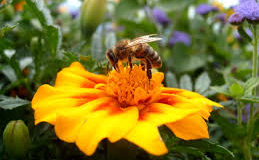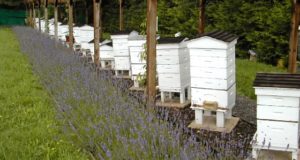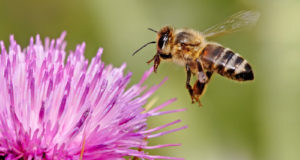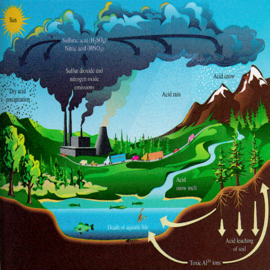
The issue of hunting’s effects on the environment can be divided into three categories. First of all, does hunting serve as a viable and legitimate method of managing animal populations? Second, do the alliances formed between hunting, conservation, and environmental groups serve the betterment of the environment? Third, does the activity of hunting promote a closer connection between the hunter and the environment, causing him or her to be an advocate for protection of the environment? We will explore each of these three areas.
Hunting as a Population Control Mechanism
According to the American Forestry Association, “under proper regulations, hunting should be considered a tool of management by owners of forest and range holders…” The Wilderness Society, “recognizes hunting as a legitimate use in wilderness areas…subject to appropriate regulation for species protection.” The National Audobon Society, “…has never been opposed to the hunting of game species if that hunting is done ethically and in accordance with laws and regulations designed to prevent depletion of the wildlife resource…we will advocate restrictions on hunting, including the complete closure of a hunting season, whenever we are convinced that the welfare of the species involved requires it…” These are quotes from some of America’s largest conservation and environmental groups. While they give little credence to the notion that hunting benefits the environment, they do serve as evidence that hunting is probably not a liability to the environment.
The famed conservationist, A.S. Leopold wrote in his well respected article “Wildlife Management in the National Parks” (April 1962), “Many herds are migratory and can be controlled by public hunting outside the park boundaries….This is by far the best and most widely applied method of controlling park populations of ungulates.” Here, Leopold is talking primarily about controlling populations of elk, but also of other hoofed animals in recognition that the biome in which they exist will not naturally maintain a healthy and sustainable population. In recent years, predatory animals like wolves, bears, and mountain lions have increased in numbers in some parks, but still are in most cases unable to do the job of maintaining a sustainable and healthy population of deer, elk, and other animals.
In conclusion, it appears that hunting can indeed serve as one of the tools to help maintain animal populations at a level where they can remain healthy and viable.
Combined Efforts of Hunting, Environmental, and Conservation Organizations
Environmentalists, conservationists and hunters have shared purposes. While to some degree there may be some divergent motivations for these parties, there are also some common goals. The environmental concerns that drive folks from an organization like the Sierra Club are in many ways identical to those of members of hunting organizations. In some cases these organizations have formed alliances such as Sierra Sportsmen. According to their website, they represent a “countrywide, thousands-strong group of conservation-minded anglers and hunters. Since the Sierra Club was founded in 1892, hunters and anglers have played a leadership role in our work to preserve the wild places and wildlife all Americans enjoy. We have built this community website for angler and hunters like you, a place to share your passion for the outdoors!” These coalitions are able to forge alliances that cannot help but promote a better environment for all.
Hunting as a Means to Draw a More Urbanized Population Closer to the Environment
Ethical hunting is an endeavor that requires a participant to become attuned to their natural surroundings. For example, a deer hunter would have a knowledge of the foods deer eat, their natural movement patterns, the types of habitat where they will be found, and even their interdependence on other wildlife. This kind of knowledge is a basic premise for any ethical hunter of any game species. It is a basic understanding of every ethical hunter that in order to have healthy and sustained game populations, there must be open habitat for the wildlife to thrive. This requires a healthy environment. This kind of hunter understands that clean water and air are a part of the biological realm that must be in place for continued hunting success. Whether they care about the environment for the sake of the environment is sometimes a debatable matter. The net effect however, is that their efforts do promote a healthier environment.
For these reasons, it can be argued that hunting has a net positive affect on the environment. For those pre-disposed to have a negative view of hunters and hunting, they will have no trouble finding examples of hunters who are not ethical. These hunters should be condemned by those hunters who wish to be viewed as a part of an effort to create a better environment. Together, hunters, environmentalists, and conservationists can work together to create a better environment that will benefit all.

Source by Paul Marsh
 Vitamin Agent The Health & Naturalistic Source
Vitamin Agent The Health & Naturalistic Source





